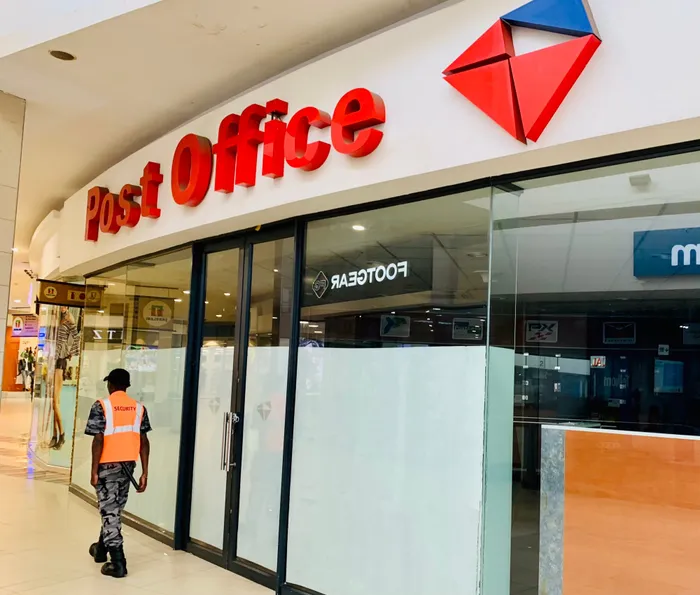Calls for independent review of Treasury's funding decisions for SA Post Office
PARLIAMENT

The BRPs said that Sapo was currently operating under severe austerity measures, which curtailed its operational capacity and threaten its ongoing services.
Image: Bhekikhaya Mabaso/Independent Newspapers
The Deputy Minister for Communications and Digital Technologies, Mondli Gungubele, has advocated for an independent system to review the National Treasury's decisions regarding urgent funding requirements.
This call to action follows the controversial rejection by Treasury of a R3.8 billion proposed rescue package intended for the beleaguered South African Post Office (Sapo), which Gungubele on Tuesday argued had successfully navigated the business rescue process.
"I wish there would be an independent system that scrutinises that. In our view, with all the calculations we have made, if we were to talk about cost-benefit analysis, had that R3.8bn been paid, a lot would have been saved rather than lost," Gungubele told the Parliament's Standing Committee on Public Accounts on Tuesday.
"But it is the thing of Treasury. I am saying I wish there could be an independent system to deal with such rejections or acceptance when it comes to crises of this nature."
Gungubele's support for the Sapo Business Rescue Practitioners (BRPs), Anoosh Rooplal and Juanito Ramos, highlighted that while all necessary processes had been executed, the pivotal funding gap still loomed large.
The BRPs said that Sapo was currently operating under severe austerity measures, which curtailed its operational capacity and threaten its ongoing services.
"It is not ideal but we are up to date with all our payments. Right now we are paying creditors in the course of business except of course the R120 million. In November or December, the entity will need more working capital requirement, which only would not arise if we had received the R3.8bn," Rooplal said.
"We are looking at some deferral arrangement for the R520m, which is conditional upon funding. It's not a guaranteed payment to creditors."
Rooplal said the delayed major portion of the rescue plan was the payment of the 18 cents per rand top up to the creditors, which once paid would have dealt with all creditors according to the plan.
He said the next thing would have been to have funding towards working capital and steered toward the right investment in uplifting the structure and even that we would have worked with the incoming board.
"The one aspect is around strategic private partnerships. That's in progress. That progress has been lifted up to the joint task team and rightly so because you need to involve Treasury to unlock funding and to help to assess the prospective partnerships," Rooplal said.
"We believe its good governance and it is sitting with the right decision makers. We add the BRPs to the joint task team, that in a nutshell is what the dashboard looks like."
"There is only literally one aspect left for us to set up the plan and that is to pay the R520m to agency and concurrent creditors, and we would be in a position to discharge. But that obviously depends on funding as we highlighted."
The BRPs further detailed their financial landscape, indicating that the R7.4bn in compromised creditor claims had left the entity in a precarious position.
"We would have discharged this months ago. Had the funding come in sooner, we would have been able to implement the last outstanding items," Rooplal said.
"But unfortunately we had to make a plan so to speak and we had to press the entity back to austerity mode so it's really limiting our ability to expand and spend because we don't have the money to spend on anything other than keeping the lights on and basic services moving.
"Currently, funding available is Universal Services Obligation funding and we all know that it must go to a specific purpose. That R572m then there is the Temporary Employee Relief Scheme funding of R381m, which has a specific purpose. We then depend on the revenue that Sapo generates on a general basis."
BUSINESS REPORT